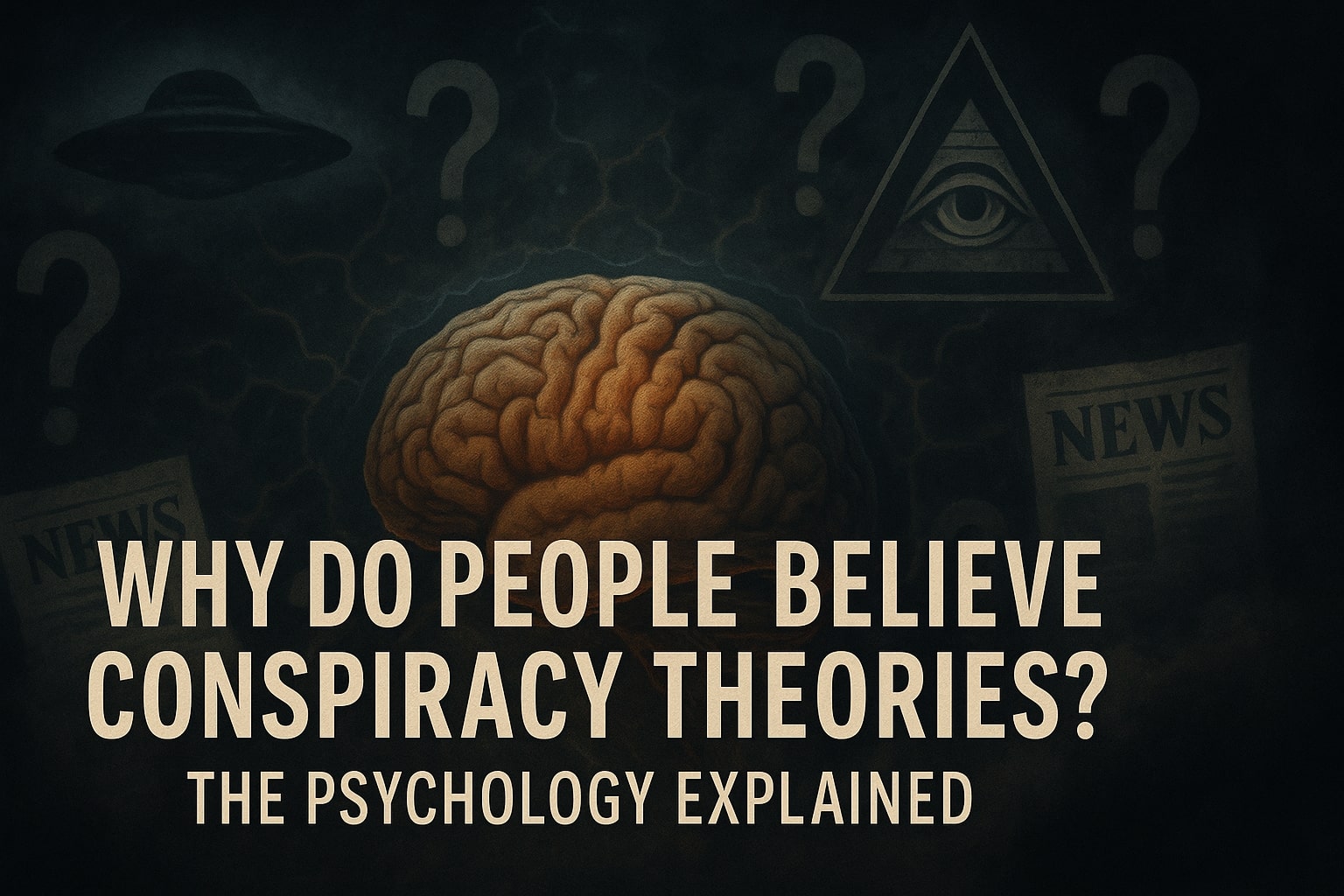What Cognitive Biases Make People Susceptible to Conspiracy Theories?
Several cognitive biases explain why people believe conspiracy theories, even when presented with contradictory evidence. Confirmation bias leads us to seek information that supports our existing beliefs while ignoring contradictory facts. Pattern recognition, normally helpful for survival, can go into overdrive, making us see meaningful connections in random events.
The availability heuristic makes recent or memorable events seem more likely than they actually are, while the proportionality bias makes us believe that significant events must have significant causes - making simple explanations feel inadequate. These mental shortcuts that usually help us navigate daily life become vulnerabilities when applied to complex world events, creating fertile ground for conspiracy thinking.
Explore related topics: smart people and bad decisions and above-average illusion.
📺 Featured Video

How Neuroscience Can Help Explain Conspiracy Theories
by BrainFacts.org
How Do Social and Emotional Factors Influence Conspiracy Beliefs?
Understanding why people believe conspiracy theories requires examining the social and emotional needs these beliefs fulfill. During times of uncertainty or crisis, conspiracy theories provide a sense of control and understanding when the world feels chaotic. They offer simple explanations for complex problems and create a sense of special knowledge that can boost self-esteem.
Social identity plays a crucial role - belonging to a group that shares these beliefs creates community and purpose. Online echo chambers reinforce these beliefs by connecting like-minded individuals while filtering out dissenting voices. Fear and anxiety make people more susceptible to theories that provide explanations for their concerns, even if those explanations lack evidence.
What Can We Do to Combat Conspiracy Theory Thinking?
Learning why people believe conspiracy theories is the first step in developing effective strategies to counter misinformation. Critical thinking education that teaches people to evaluate sources, recognize logical fallacies, and understand cognitive biases can build immunity to conspiracy thinking. Encouraging exposure to diverse viewpoints and teaching media literacy helps people navigate information more effectively.
Emotional approaches work better than logical arguments when addressing someone's conspiracy beliefs. Listening with empathy, understanding their underlying concerns, and providing alternative explanations that address their emotional needs can be more effective than simply presenting facts. Building trust in credible institutions and creating positive social connections outside conspiracy communities also helps reduce susceptibility to these beliefs.
